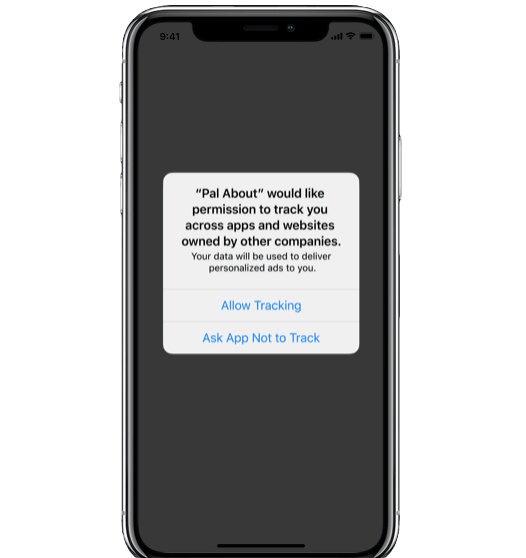How Apple’s iOS14 Update Will Impact Facebook Advertisers
IOS14 has begun rolling out to iPhones worldwide and the new release includes new security and privacy updates.
One of the major updates will give users explicit control over whether apps can use their data for advertising purposes.
All iOS apps are required to adopt and display Apple’s new transparency prompt, and explicitly seek permission to track users across apps and websites owned by other companies. If they don’t comply, they will risk being removed from the Apple App store.

They are also going to have to submit information about their data collection processes to the apple app store, as well as restricting, aggregating, and delaying event reporting.
Apple is introducing these changes to give people better visibility and control over how their data is accessed and it’s likely that many users wont grant apps tracking permissions. Naturally, businesses and advertisers are going to have to rethink how they reach their customers because the level of personalisation we are all used to will be limited.
All iOS apps are going to be affected and Facebook, with its extensive network of small to enterprise level advertisers, will start adopting Apple’s prompts by the end of January 2021, after the prompt is enforced.
What happens if an iOS14 user gives Facebook tracking permission?
If a user opts in to tracking, there will be no direct changes to how an advertiser can target them, optimise their campaigns towards their preferences, and report on their behaviour on Facebook.
However, since the structure of Facebook Ads Manager is changing (e.g. with changes to attribution modelling and conversion event limits), there will be indirect impacts on how advertisers reach these users.
What happens if an iOS14 user does not give Facebook tracking permission?
If a user opts out of tracking, there will be limitations and restrictions to the types of data that advertisers can collect about their journey from Facebook to that advertiser’s website or app. Data use will be limited and conversion events for opt-out groups will be restricted, aggregated, and delayed.
This will impact ROAS calculations, campaign structure, and measurement.
What are the implications for how campaigns are set up on Facebook?
All advertisers are going to be restricted to optimising and reporting on only 8 events and custom conversions using the Facebook pixel. These events will be configured at a domain level, and the advertiser’s domain needs to be verified within Facebook Ads Manager.
Every advertiser should prioritise their events, because after a user opts out, Facebook will only receive information on one conversion event that user completes.
This means that it will be difficult to provide a holistic view of results and audience sizes will be smaller. Advertisers will have a partial view of campaign performance and campaign activity will be underreported. It is also likely that remarketing or prospecting campaigns will see dips in performance.
What are the implications for optimising and reporting?
There will often be a delay of 24-48 hours on event and conversion reporting. This will impact our ability to optimise campaigns and report in real time.
Any time an optimisation strategy is changed to a new event, there will be a three day wait for the changes to take effect. That means there will likely be a decrease in reported conversion volume, as not all converters can be tracked and attributed back to Facebook.
What are the implications for Facebook attribution?
Advertisers will no longer have a full 28-day attribution window for post-click and post-view conversions. The only options will be:
- 1 Day View Through Conversion Window
- 7 Day Click Through Conversion Window
What should advertisers do next?
All advertisers need to verify their website domain(s) in Facebook Business Manager as soon as possible.
They should also audit their active events and prioritise the 8 events that they want to see available for optimisations and reporting. The functionality to activate these 8 events in Facebook Events manager is not available as of the 19th of January 2021 but should be available soon.
What are the longer-term effects?
The longer-term effects of these privacy updates will take time to come to light. Facebook is one of many apps which will need to adapt to these changes and marketers are going to have to reevaluate their strategy across their websites, CRMs, pixels, reporting, and measurement.
In the meantime, we will be closely monitoring the performance of conversion based and remarketing campaigns and calling out actions to take as further information becomes available. We will also be calling out specific campaigns that are using outgoing attribution models and making adjustments in consultation with our clients.
These changes are going to affect all Facebook advertisers, so the best way to minimise the effects and keep moving forward is to stay tuned to updates and adapt your campaigns accordingly. If you’re unsure of any of the advice in this article, get in touch with our performance team today.